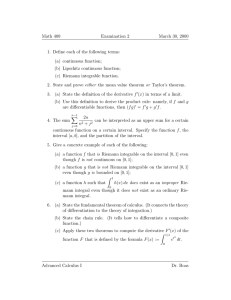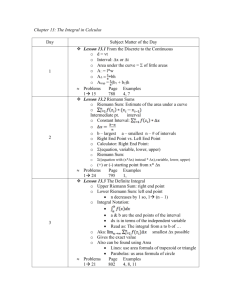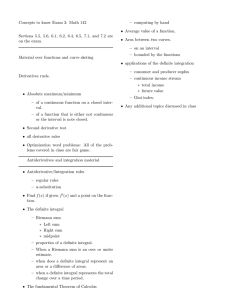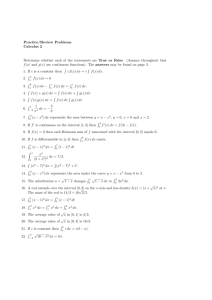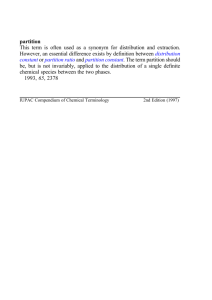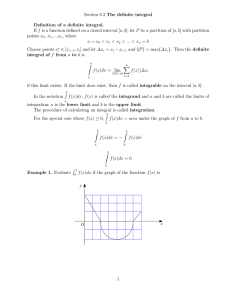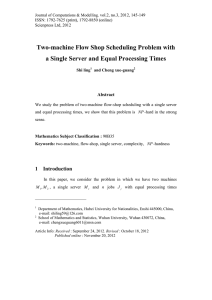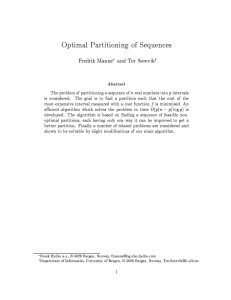Section 5.2/5.3 I. Summary: Algebra, Limits,
advertisement
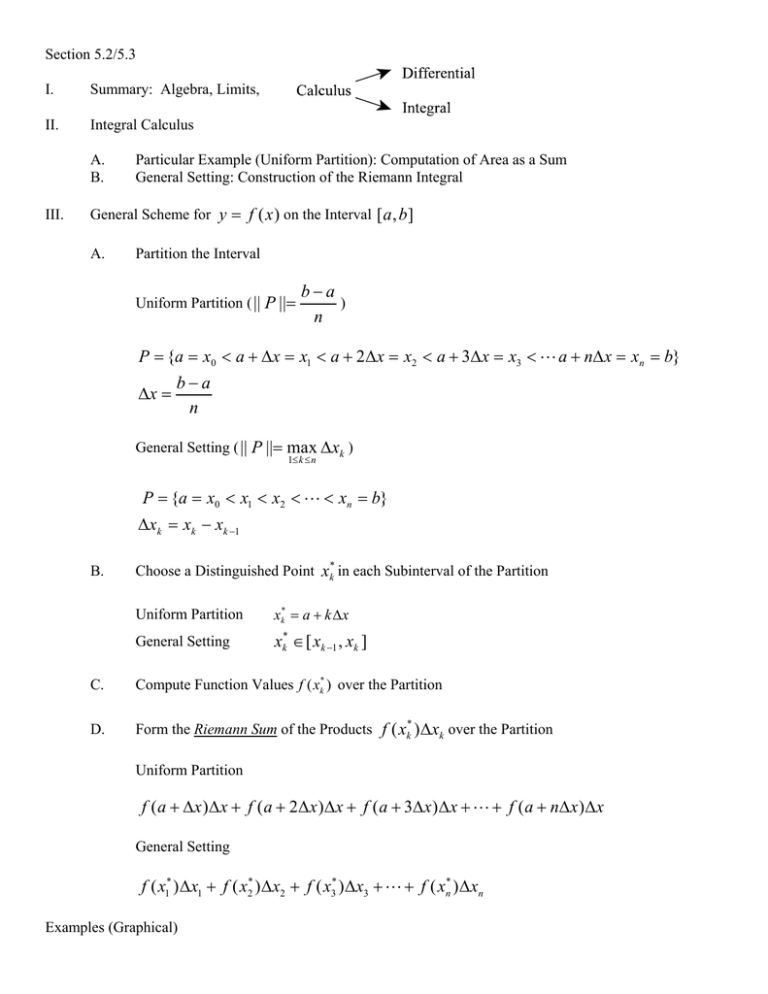
Section 5.2/5.3
I.
Summary: Algebra, Limits,
II.
Integral Calculus
A.
B.
III.
Particular Example (Uniform Partition): Computation of Area as a Sum
General Setting: Construction of the Riemann Integral
General Scheme for y = f ( x ) on the Interval [ a , b ]
A.
Partition the Interval
Uniform Partition ( || P ||=
b−a
)
n
P = {a = x0 < a + Δx = x1 < a + 2 Δx = x2 < a + 3Δ x = x3 < " a + nΔ x = xn = b}
Δx =
b−a
n
General Setting ( || P ||= max Δxk )
1≤ k ≤ n
P = {a = x0 < x1 < x2 < " < xn = b}
Δxk = xk − xk −1
B.
Choose a Distinguished Point xk* in each Subinterval of the Partition
Uniform Partition
xk* = a + k Δx
General Setting
xk* ∈ [ xk −1 , xk ]
C.
Compute Function Values f ( xk* ) over the Partition
D.
Form the Riemann Sum of the Products f ( xk* ) Δxk over the Partition
Uniform Partition
f ( a + Δx ) Δx + f ( a + 2 Δ x ) Δ x + f ( a + 3Δ x ) Δ x + " + f ( a + nΔ x )Δ x
General Setting
f ( x1* ) Δx1 + f ( x2* ) Δx2 + f ( x3* ) Δx3 + " + f ( xn* ) Δ xn
Examples (Graphical)
IV.
Summation Notation
A.
Basic Properties
1.
3.
5.
V.
Constant Term
Scalar Multiple Rule
Subtotal Rule
1.
Formulas
2.
Examples
2.
4.
6.
Sum Rule
Linearity Rule
Dominance Rule
Riemann Integral for y = f ( x ) on the Interval [ a , b ]
A.
Form the Riemann Sum as Described in Step III Above
B.
Compute the Limit of the Riemann Sum as || P ||→ 0
1.
If the limit exists, we say the function f is integrable on the interval [ a , b ]
b
2.
We denote the limit by
∫ f ( x)dx and call it the definite integral of f from a to b
a
3.
The function f is called the integrand; the interval [ a , b ] is called the interval of
integration; the endpoints a and b are the called the lower and upper limits of integration,
resp.
4.
Theorem (Advanced Calculus) If f is continuous on an interval [ a , b ] , then f is
integrable on [ a , b ] .
b
5.
If f is continuous on [ a , b ] and if f ( x ) ≥ 0 on [ a , b ] , then
∫ f ( x)dx = area under the
a
curve y = f ( x ) over the interval [ a , b ] .
Examples
C.
Properties of the Definite Integral
1.
3.
5.
Examples
Integral at a Point
Linearity
Dominance
2. Interchanging the Limits of Integration
4. Subdivision Rule
